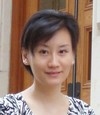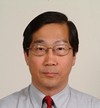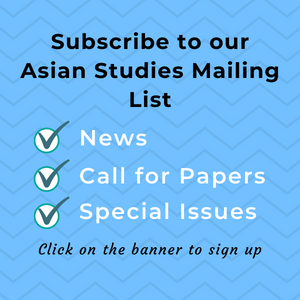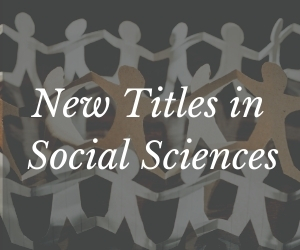With the theme “China Dreams: Opportunities and Challenges,” this book contributes to emerging debates on Chinese new leadership's adaptability to important political, economic, social, and global issues. Can China's political system sustain “China Dreams”, a slogan ushered by Chinese President Xi Jinpin? Does the fulfillment of “China Dreams” require political reform? Does the initiation of the agenda of “China Dreams” facilitate China's economic transition? To what extent does “China Dreams” pave the way for China's peaceful rise? By exploring the preceding questions, the essays by Lowell Dittmer, Thomas Gold, Victoria Tin-bor Hui, Chin-fu Hung, Scott L Kastner, Huey-Lin Lee & Scott Y Lin, Chih-shian Liou, Raviprasad Narayanan, Kellee S Tsai, and Chung-min Tsai provide a comprehensive analysis of the agenda of China's new leadership.
Sample Chapter(s)
Introduction (199 KB)
Chapter 1: The China Dream: Revival of What Historical Greatness? (277 KB)
Contents:
- China Dreams and China's Global Roles:
- The China Dream: Revival of What Historical Greatness? (Victoria Tin-bor Hui)
- China's Dream, China's World (Lowell Dittmer)
- Dreams or Reality? A Preliminary Exploration of the Relationship between China's Growing Economic Power and Its Political Influence in Developed Countries (Scott L Kastner)
- China Dreams and China's Political Systems:
- Streamlining the Leviathan: The China Dream and Super-Ministry Reform (Chih-shian Liou)
- The "China Dream" in the Xi–Li Administration in the Information Age: Shared Dreams or Same Bed, Different Dreams? (Chin-fu Hung)
- "China Dreams": Political Slogan or Flight of Fancy? (Raviprasad Narayanan)
- China Dreams and China's Economic Transitions:
- The China Dream: Tigers, Flies, and Other Challenges to Economic Reform (Kellee S Tsai)
- Market Development and the China Dream: State–Business Relationship and Regulatory Capacity in China (Chung-min Tsai)
- Microfinance and the China Dream (Thomas B Gold)
- Weighing up Market Mechanism and Regulated Distribution: A China Dream to Feed Itself under Spatially Imbalanced Development (Huey-Lin Lee and Scott Y Lin)
Readership: Academics, professionals, undergraduate and graduate students interested in China's political system, China's new leadership and agenda of “China Dreams”.
"In this timely and pioneering publication, the authors asked the questions of where China wants to go and where it is actually going. While Mr Xi Jinping's 'China Dreams' suggested an all-encompassing China agenda, the imagination, interpretation and realization of the Dreams have been far more dynamic and not necessarily coherent. This well-edited volume covers key areas of China's political, economic and social development under Xi's leadership. The collection stands out in its balanced treatment of both the state and grassroots actors, and both the shared and separate dreams. It also makes a great contribution to the literature on Global China, as much of the 'China Dreams' is inevitably connected with the dreams of other peoples and countries."
You-tien Hsing
Professor of Geography
Pamela P Fong and Family Distinguished Chair in China Studies
Chair of Center for Chinese Studies
University of California at Berkeley
"Written by leading scholars of Chinese politics, economics, history, and society, this volume is one of the first to analyze Chinese leader Xi Jinping's notion of 'China Dreams'; Exploring both the content and likely impact of Xi's 'China Dreams', the authors paint a multifaceted picture of China's historical development, current status, and future trajectory — both domestically and internationally. Their findings suggest that China's leaders face substantial challenges, and that the realization of Xi's 'Dreams' may not be smooth. Some groups and vested interests appear determined to resist or redirect Xi's 'Dreams'. And there are signs that conflict and tension may accelerate, not only between the Chinese party-state and its people, but also within the party-state, and between China and other countries. For readers seeking a wide range of perspectives on China's rise, this volume provides much food for thought."
Teresa Wright
Chair and Professor of Political Science, California State University
"This edited volume analyzes an important concept at a time of China’s rapid ascendency to a great power status, and helps enhance our understanding of the various aspects of ‘China Dream’. This volume is a useful source for those engaged in China studies."
Journal of Chinese Political Science

Chih-shian Liou is an assistant research fellow at the Institute of International Relations and assistant professor at the Graduate Institute of East Asian Studies at the National Chengchi University, Taiwan, Republic of China. She received her PhD in Political Science from the University of Texas at Austin, her LLM from the University of Pennsylvania, and her MA, BA, and LLB from the National Taiwan University. She specializes in Chinese politics, political economy, bureaucratic politics and foreign policy. Her research has appeared in Asian Survey, World Development, Taiwanese Political Science Review and other journals. Her current research examines the trajectory of central state-owned enterprise reform in China from the Comparative Capitalism perspective.

Arthur S Ding is a distinguished research fellow and director of the Institute of International Relations, National Chengchi University, in Taipei, Taiwan. His research focuses on China's security and defense policy, including civil-military relations, defense strategy, defense industry, and arms control. Arthur S Ding's published works include China's Changing Military Theory, 1979–1991 (Taipei: Tangshan Publishing House, 1996), PRC's Defense Industry Conversion (Taipei: Mainland China Affairs Council, 1996), and articles in numerous edited books and journals. The two books that he edited are Hu Jintao Shidai de Tiaozhan (Taipei: New Journalist, 2002), which provides an overall review of political and administration reform made during Jiang Zemin era, and Mega Trend in China (Taipei: New Journalist, 2004). He held visiting appointments at Rajaratnam School of International Studies, Nanyang Technological University, Free University of Berlin, Fairbank Center of Harvard University, Monterey Institute of International Studies, and Georgetown University. He received his BA in Anthropology from the National Taiwan University, and his PhD in Political Science from the University of Notre Dame.


























